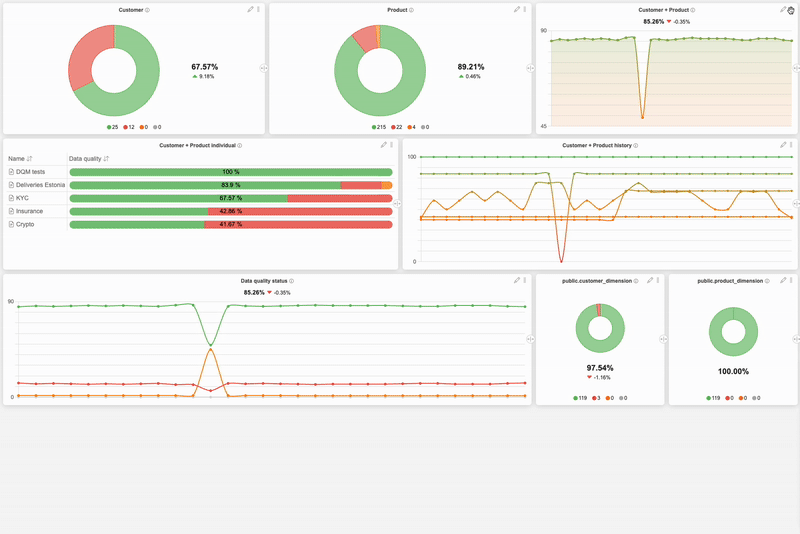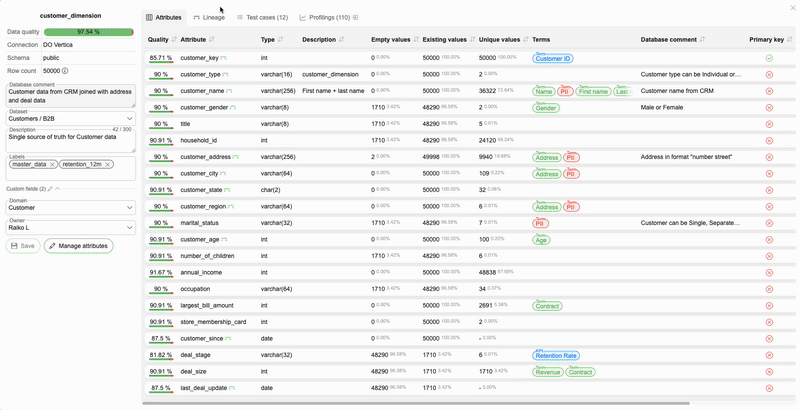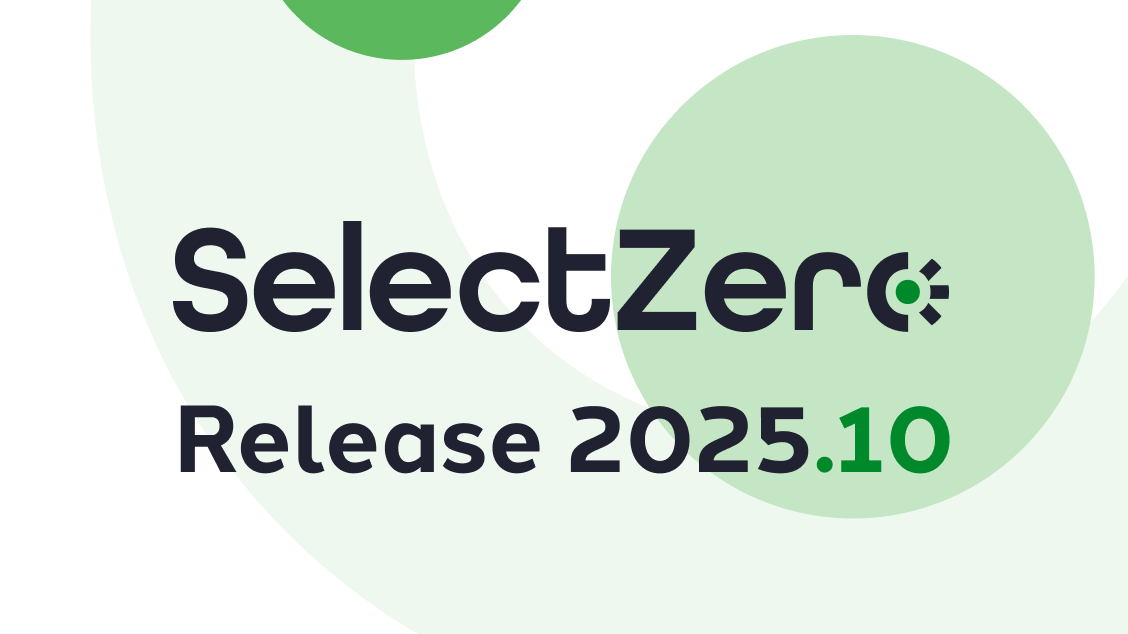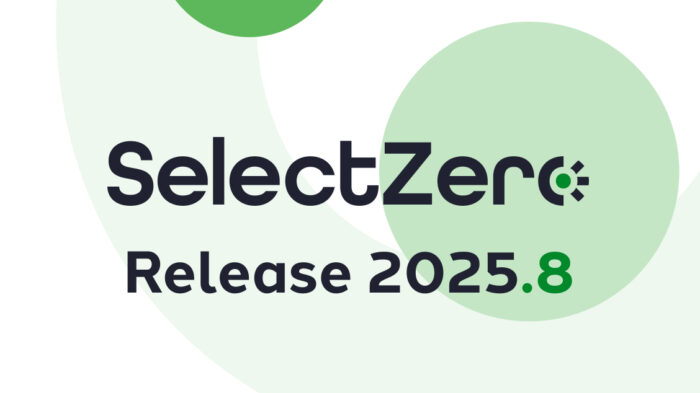Personalised dashboards
SelectZero now allows users to create fully customizable data quality dashboards with flexible layouts, visualizations, and content. Dashboards can include Test Suites, Reports, Business rules, or individual Data Objects, and are role-based to ensure relevant views for each team or business domain. Users can set favourites for quick access and explore created dashboards they have permission to view.
Note: Dashboard prior to 2025.10 has been deprecated.

Extended filtering for Reports
Reports now support filtering by Test Case custom fields, enabling faster and easier analysis of data quality results. This enhancement allows users to create custom data quality metrics, such as Availability, Uniqueness, or Accuracy. Combined with Personalised Dashboards, teams can now easily showcase targeted data quality insights to stakeholders.

Automated lineage improvements
SelectZero’s automated lineage detection is now smarter and more comprehensive. The new Smart Lineage option accounts for temporary tables created and dropped within SQL scripts, ensuring more accurate lineage extraction. Lineage can now also be detected directly from procedures, with discovered relations automatically added to the platform. In addition, users can view the exact SQL statement behind each relation, including the precise source context within the script.

CRON scheduling
The scheduling engine now supports CRON-based scheduling, providing greater flexibility and precision in automating data quality processes. Users can configure Test Cases, Test Suites, and Profiling tasks to run at highly specific times and intervals, enabling more dynamic and fine-tuned execution schedules.

Required custom fields
Custom fields now support a Required attribute, ensuring key information is always provided when creating or editing entities such as Test Cases, Catalog Attributes, or Terms. Additionally, default values can be defined to prefill fields during entity creation, streamlining data entry and improving consistency across the platform.

Dataset custom fields
Catalog Datasets now support custom fields, enabling richer and more flexible metadata management. This allows users to define additional attributes and classifications, creating a more comprehensive data catalog by organizing and describing physical data assets within customized datasets.

Improved User Experience for Data Catalog
The Catalog Object view has been redesigned for greater clarity and efficiency. Dedicated tabs for Attributes, Lineage, Test Cases, and Profilings make it easier to explore, manage, and monitor each object’s metadata and quality in one structured view.


BCBS 239: How Data Observability helps to meet regulatory compliance
Following the 2007–2008 global financial crisis, it became painfully clear that many of the largest global financial services firms did not have the tools, methodology or data governance principles needed to accurately measure their risk [...]
Release 2025.10
Personalised dashboards SelectZero now allows users to create fully customizable data quality dashboards with flexible layouts, visualizations, and content. Dashboards can include Test Suites, Reports, Business rules, or individual Data Objects, and are role-based to [...]
Release 2025.8
BI tools integrations (Tableau, Power BI) You can now connect Tableau and Power BI (Power BI Service) as datasources, enabling access to report metadata and automatically mapping lineage from reports to their underlying datasources. [...]
Exploring SelectZero #2: Data reconciliation
In this short video we will walk through how to create data reconciliation checks between multiple databases. With SelectZero’s data quality platform, you can define and run data comparisons to detect discrepancies like missing [...]
Exploring SelectZero #1: Data validations
In this short video we will walk through how to validate data directly in a data warehouse using SQL. With SelectZero’s data quality platform, you can define and run quality checks that catch critical [...]
SelectZero free Starter tier
Over the years we have met with hundreds of members from different data teams to discuss their needs and use cases involving Data Observability. To this day, one of the most common ways engineers and [...]









